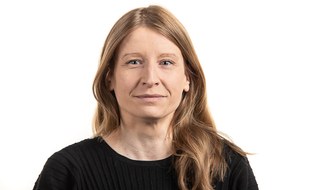ERASMUS+ Mobility Funding
European universities have a wide range of options available to them for funding the mobility of students, lecturers, and university staff inside and outside Europe.
The awarded Erasmus Charter for Higher Education 2021 to 2027 (ECHE) entitles TU Dresden to participate in the Erasmus+ Program 2021-2027. The university-specific objectives are described in the Erasmus Policy Statement 2021-2027.
Within the current programme period, the digitalisation of the Erasmus+ programme is the main focus of European higher education cooperation. This includes the digital creation of Erasmus agreements and the creation of digital components for programme management, such as learning agreements, nomination tools and transcripts of records. An overview of the planned measures and the current status of implementation is provided by the DAAD's National Agency for Erasmus+ Higher Education Cooperation.
Below you will find an overview of the funding opportunities with detailed information on each.
TU Dresden currently partners with over 300 universities worldwide in the Erasmus program, as Erasmus is now a global exchange program. TU Dresden students have the opportunity to gain valuable experiences by visiting a partner university in another country during their studies.
You can find detailed information on current student exchange openings, the application process and financial support on the Erasmus website.
ERASMUS+ provides grants for visiting lecturers at partner universities both in Europe and worldwide, providing certain conditions are met. Your courses are coordinated in advance with the host university abroad and included in the local course catalogue. ERASMUS+ also enables university staff training activities at European universities. Visit these websites for information about the program.
Erasmus offers opportunities for students and staff from TU Dresden's EU and Non-EU partner universities to study and to teach or train at TU Dresden.
- Information for partners from Non-EU countries and regarding Erasmus + International Credit mobility and the respective available grants at TU Dresden can be found on the Erasmus worldwide website.
- Information regarding funding opportunities for students and staff from partner universities in the EU can be received from the International Office at your home university. Incoming students from EU countries will find more information about applying at TU Dresden for exchange studies on the website for exchange students.
Erasmus+ Blended Intensive Programmes are teaching/learning elements jointly delivered by several universities, combining virtual components with short-term physical mobility.
In order to receive funding for such a mixed physical-virtual teaching format (e.g. a summer school), the following conditions must be met:
- In addition to TUD, at least 2 other partner universities (European ERASMUS region) participate. These must be recognised Erasmus higher education institutions (certified by the Erasmus Charter for Higher Education) and have an active Erasmus cooperation agreement with TUD.
- The planned format consists of a physical mobility phase (5-30 days) and a virtual component.
- The virtual phase can take place before, during or after the physical mobility and can include, for example, teamwork within the framework of joint projects and/or online courses.
- There is no financial funding available for the virtual phase
- The virtual phase can take place before, during or after the physical mobility and can include, for example, teamwork within the framework of joint projects and/or online courses.
- At least 10 (max. 20) ERASMUS-funded persons (students and/or university staff) must participate in a BIP.
- The funded persons will receive their mobility grant from the sending institution.
- example to illustrate: You apply for a BIP (i.e. summer school) here at the TUD with partners in Ireland and Spain. Only the participants from Spain and Ireland count as funded participants, but not those from the TUD.
- Student participants receive 3 ECTS for participation in the BIP; for participating doctoral students and staff, the workload is used as a criterion.
- The BIP takes place for all participants at the same time and in the same physical location.
- The host institution can be e.g. the TUD, but it must be in a programme country (in the European ERASMUS area), without the partner university there necessarily participating in the BIP applied for.
The application for such a BIP must be submitted by September at the latest for projects in the following year via the ERASMUS University Coordination in the International Office. If the application is successful, the respective BIP programme coordinator (faculty/subject representative) will receive organisational funds of 400 euros per participant (max. 8,000 euros) for the implementation. These organisational funds can be spent, for example, on expenses for staff, materials, room rental, communication, activities, accommodation for participants from partner countries (countries outside the European ERASMUS area).
We will be happy to advise you on the planning and implementation of a BIP. Please contact TUD's Institutional ERASMUS Coordination.
As in Blended Intensive Programs, the aim is to promote flexible and innovative learning and teaching within the framework of joint projects and/or online courses (e.g. summer school, excursion, workshop, colloquium).
This format combines virtual and physical mobility phases in close cooperation with ONE partner university in the European Erasmus+ area with which an inter-institutional Erasmus+ agreement already exists in the relevant subject area. It would be conceivable, for example, to embed an excursion to a partner university as a compulsory part of a course.
The timing and duration of the virtual component are variable, the physical mobility comprises 5 to 30 days.
Students should achieve at least 3 credit points by participating.
There is no minimum number of participating students in this format.
Funding is available for participating students and accompanying teaching staff.
Applications for a BMP must be submitted to the Institutional Erasmus+ Coordinator at the International Office at least 3 months before the start of the project.
ERASMUS Partner Universities for students exchange
ERASMUS Partner Universities for staff exchange
Fact Sheet D DRESDEN02 - Information for Partner Universities
 © Michael Kretzschmar
© Michael Kretzschmar
Team Leader
NameMs Dipl.-Kffr. Sandy Eisenlöffel M.A.
Institutional ERASMUS Coordinator
Send encrypted email via the SecureMail portal (for TUD external users only).
Visiting address:
Fritz Foerster Bau, Office 172 Mommsenstraße 6
01069 Dresden
Postal address:
TUD Dresden University of Technology International Office
01062 Dresden

